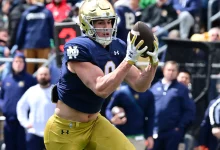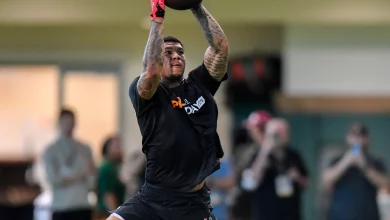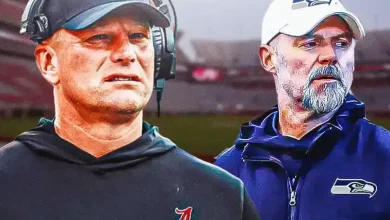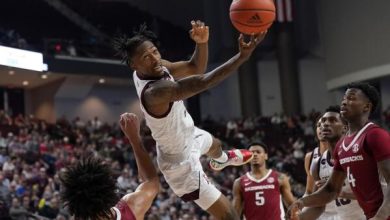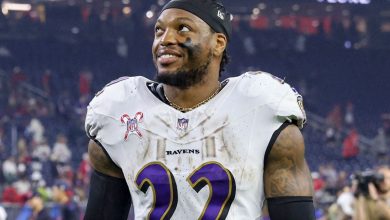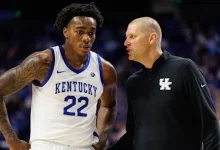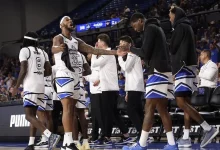Marcus Freeman insists the Notre Dame-USC rivalry should endure indefinitely: “It don’t matter when we play ’em,” he says.
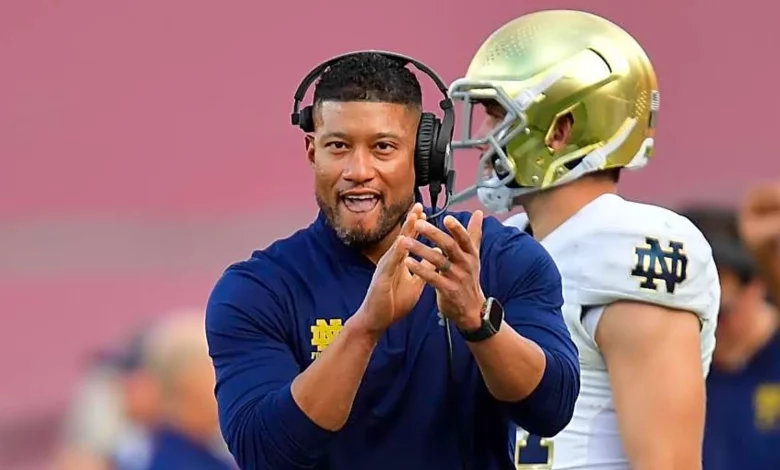
The Notre Dame-USC football rivalry is one of college football’s most storied and celebrated traditions. Spanning decades, this matchup has featured legendary players, iconic moments, and a deep-seated passion that resonates with fans, alumni, and players alike. As the rivalry continues to evolve, Notre Dame head coach Marcus Freeman has stepped forward with a clear and heartfelt message: he wants the Notre Dame-USC rivalry to last forever. “It don’t matter when we play ’em,” Freeman emphasizes, underscoring the timeless significance of this annual battle, regardless of scheduling changes or circumstances.
In this article, we explore the history and significance of the Notre Dame-USC rivalry, delve into Marcus Freeman’s perspective on why the rivalry matters so much, and consider how this rivalry continues to shape college football culture today and into the future.
A Rivalry Rooted in Tradition
The Notre Dame-USC rivalry began in 1926 and quickly became a marquee event on the college football calendar. Over nearly a century, the Fighting Irish and the Trojans have met over 90 times, producing thrilling games that often have national championship implications. The rivalry has witnessed numerous Heisman Trophy winners, Hall of Fame coaches, and unforgettable moments that have defined generations of college football fans.
What sets this rivalry apart is not just the competitive spirit but the cultural and historical connections between the two programs. Notre Dame, an independent with a nationwide fanbase and Catholic identity, and USC, a Pac-12 powerhouse with deep roots in Southern California, represent distinct yet equally passionate football traditions. Their annual clash bridges geographic and cultural divides, bringing together millions of viewers and creating a spectacle that transcends the sport.
Marcus Freeman: The New Voice of Notre Dame Football
Marcus Freeman took over as Notre Dame’s head coach in December 2021, succeeding Brian Kelly. Known for his passionate coaching style and defensive expertise, Freeman quickly endeared himself to the Notre Dame community with his authenticity and dedication. As a former linebacker and NFL draft pick himself, Freeman understands the importance of rivalries in shaping players’ experiences and motivating teams.
Freeman’s commitment to preserving and honoring Notre Dame’s traditions is clear. Among those, the Notre Dame-USC rivalry stands out as a highlight of the football calendar. Despite various scheduling challenges, conference realignments, and the evolving college football landscape, Freeman has made it clear that maintaining this rivalry is a priority.
“It Don’t Matter When We Play ‘Em”
Freeman’s quote, “It don’t matter when we play ‘em,” reflects a broader philosophy about rivalry games: the specific date or time on the schedule is secondary to the significance and intensity of the contest itself. Whether the game is played early in the season, late in November, or at a neutral site, Freeman insists that the spirit of the rivalry endures.
This sentiment is particularly relevant given the changing nature of college football schedules. Notre Dame and USC have faced uncertainties about their annual meeting due to conference realignment and scheduling logistics. The two programs announced a future home-and-home series starting in 2024 after a brief hiatus, demonstrating a mutual commitment to continuing the rivalry despite external factors.
Freeman’s viewpoint acknowledges that while the logistics of scheduling may fluctuate, the rivalry’s meaning does not. Players and fans alike feel the weight of history, pride, and competition every time these teams meet — regardless of the calendar.
The Impact of the Rivalry on Players and Fans
For players, the Notre Dame-USC rivalry is often a defining moment of their collegiate careers. It is a game that tests their skills under intense pressure, in front of passionate crowds, and with national attention. Coaches like Marcus Freeman understand that preparing athletes for this game goes beyond physical readiness; it requires cultivating respect for the history and stakes involved.
Freeman has been vocal about inspiring his players to appreciate the legacy they step into when facing USC. He stresses the importance of pride, grit, and unity, framing the rivalry as an opportunity to create their own memories while honoring those who came before.
For fans, the rivalry serves as a yearly celebration of tradition and community. Whether attending the game in person or watching from home, fans engage in spirited debates, tailgates, and rituals that amplify the rivalry’s excitement. The game also acts as a cultural touchstone, connecting alumni and supporters across generations.
The Future of the Rivalry
Looking ahead, Marcus Freeman and the administrations at Notre Dame and USC have expressed optimism about the rivalry’s longevity. Both programs recognize the value the game brings to their brands, recruiting, and fan engagement. With the evolving college football playoff system and the possibility of more frequent high-stakes matchups, the rivalry could gain even greater prominence.
Freeman’s commitment to this rivalry reflects a broader desire to maintain the traditions that make college football special amid an ever-changing landscape. As conferences realign, media rights evolve, and playoff formats expand, rivalries like Notre Dame-USC serve as anchors that preserve the sport’s identity.
Beyond the Field: Cultural Significance
The Notre Dame-USC rivalry transcends football. It embodies regional pride, cultural identity, and even academic prestige. Notre Dame’s Catholic heritage and academic reputation contrast with USC’s position as a major urban research university with strong ties to the entertainment industry.
This contrast adds depth to the rivalry, making it more than just a game. It becomes a representation of broader narratives — of East Coast vs. West Coast, tradition vs. innovation, and faith vs. diversity. Freeman’s awareness of these dimensions underscores his holistic approach to coaching and leadership.
Marcus Freeman’s insistence that the Notre Dame-USC rivalry “don’t matter when we play ‘em” encapsulates a profound truth: some rivalries are timeless, enduring beyond schedules and seasons. As the new steward of Notre Dame football, Freeman embraces this tradition wholeheartedly, championing the rivalry’s importance for players, fans, and the sport as a whole.
The Notre Dame-USC game remains a highlight of the college football calendar, a clash steeped in history and passion that continues to captivate audiences nationwide. With leaders like Freeman at the helm, this rivalry is set to thrive for generations to come — no matter when or where the teams face off.


